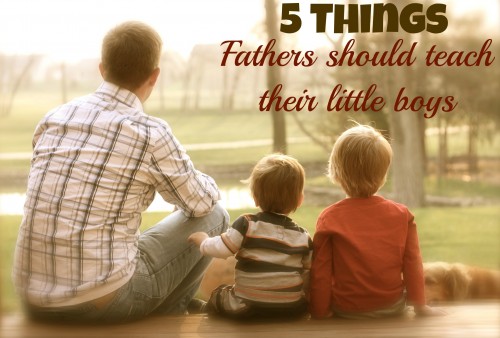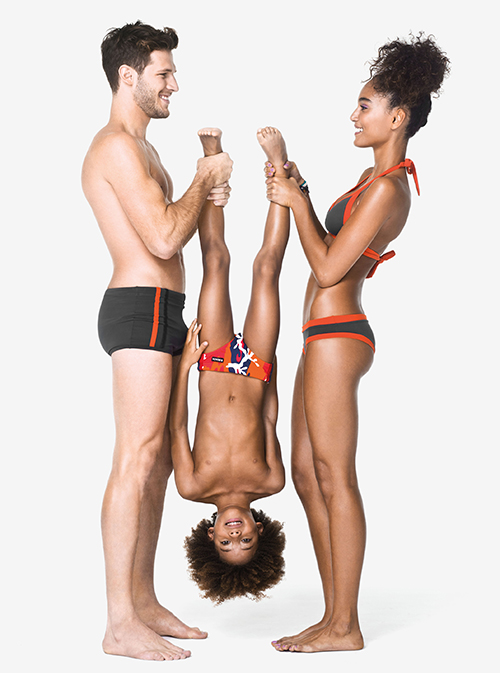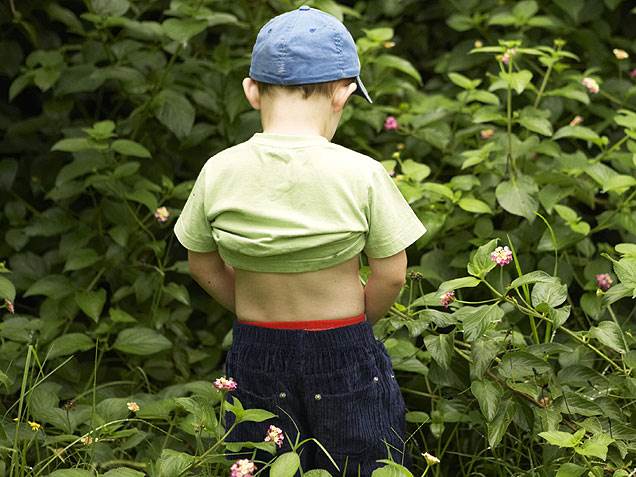Parenting: 5 Things Dad’s Should Teach Their Sons
It was quite some time ago now (almost two years) that I accidentally ran across a posting on one of the many “mommy blogs” entitled “Five Things Dad’s Should Teach Their Sons” and decided to think about linking to it in some way.
Things fathers can teach sons
My indecision and delay has not been because of the idea or topic; but that I just don’t (as you know) link to or promote web pages commercialized and filled with advertisements.
Parenting: A Father’s List
I actually think the idea is cute and the topic timely, so I’ll give you the link with the disclaimer at the bottom after I’ve outlined my own take on the topic of some of the few parenting things fathers seem to be able to teach boys better (or at least with more ease) than their mother – yes, there are one or two.
These few topic headings, I will confess, are suggestions from various parents (and bloggers) I’ve known – the descriptions and observations are mine that have come from hundreds of hours of discussions and counseling with patients and parents.
1 – How to Roughhouse
Put any male in a room with a five-year-old, even without any parenting classes at all, and they’ll probably end up roughhousing. Even an only child male (no brothers) who grew up without a father of his own for a role model just somehow knows that wrestling is what fathers do, as surely as they know that holding your breath makes you dizzy.
Every normal boy absolutely needs to have some of it; so, moms, just get over it! True, roughhousing can get out of hand a little; but, that’s the kind of give and take that teaches limits first hand. It’s how males give “contact comfort” unique to the male sex and like I said is hard-coded on the “Y” chromosome; that’s my story and I’m stickin’ to it.
I wrote down a quote from an article in ABC news (“Roughhousing with Dad Crucial for Development) some time ago and I can paste it here: “Rough and tumble play between fathers and their young children is part of their development, shaping their children’s brain so that their children develop the ability to manage emotions and thinking and physical action altogether.” “This is a key developmental stage for children in that preschool area between the ages of about two and a half and five. That’s when children learn to put all those things together.”
I remember the commentator touting that the child learned confidence and achievement by “defeating a more powerful adult.” Hmmm… I don’t think that’s anywhere near as significant as the guy was claiming.
There’s also the lesson in life that: “you don’t always win”; but, those kids aren’t dummies. They know that dad could clean their clock if he wanted to; but, he doesn’t – that’s the key. “My dad is taking time to play with me,” and pretend. “I could get hurt but I don’t.” That bonds. That builds trust.
Roughhousing is initiated much, much more often by male children than female children. A wise father watches for that and doesn’t discriminate when the desire is there; of course it should always be age appropriate.
In terms of single parents going it alone – dad’s aren’t very good at doing the tongue-clicking and warning that “somebody’s going to get hurt” thing… (which I’ll rush to point out is a valuable and necessary aspect of parenting.)
And mom’s aren’t usually in their element with wrestling, tickling and tossing in air … also a critical function in the life of a child.
“It’s a natural desire on the part of parents and children to bond physically, and men more often respond to that with physical play,” the ABC article finished.
Moms, what you might call roughhousing, dad would call “showing affection” (it’s a guy thing!) An acquaintance told me once: “Alice hugs and cuddles him… I hold the kid upside down” – it’s all good.
The kiddo’s are usually much sturdier than they look. Unless he’s completely clueless (a rarer occurrence than you might think or see on TV) he won’t hurt them.
And finally, these days and going forward for the foreseeable future, if you as parents don’t see that they get this “contact comfort” – with the massive numbers of laws and “stranger danger” prohibitions on the books these days no one else will.
2 – How To Pee Standing Up (and occasionally outside)
Especially in the US, being able to pee standing up should be considered an important life survival skill for a boy – I’ve been in public “men’s restrooms” were there wasn’t a toilet (at least functioning) and urinals were the only option. Might as well learn it young – while you can still teach him social rules.
It’s probably hard to believe but I’ve been on prolonged outdoor group events where only by careful observation was I able to see that a 9-year-old youngster on the trip with his friend was starting to become more miserable as the day progressed. Bottom line: with trees, bushes and major rock outcroppings all around him, he still had no clue how to relieve himself. And, it was no small feat undoing some apparently stern parenting about “only going potty in a bathroom on the toilet.” Poor kid.
He literally broke into tears as he ran after I whispered to him: “It’s OK if you go pee behind that big rock over there.”
Now, with this Pandora climbing out of its box, I also feel compelled to add that there ARE limits to where it is appropriate to pee outdoors!
You don’t do it in public places, where you can be observed and gross people out; OR, where other people may later need to walk; OR, ON anything that was made or constructed such as buildings, stairwells, sidewalks, signs etc.. AND you don’t do it just because you are too lazy to find or go into a lavatory.
You simply go around a rock where no one can see, out of the way where no one is likely to inadvertently walk and onto ground where it can seep in and be biodegraded! To do otherwise is thoughtless, shows a lack of maturity… and is just plain gross! Be sure and teach the limits when you teach the skill and not just as an excuse to be lazy.
In some circles this little ability just may be the only advantage boys have over girls (or at least admitted to) as was alluded to by Chet Atkins some time ago in a song – “I still write your name in the snow
3 – How to ‘Be A Man’
It goes to the core concept of being unique in oneself. Whether or not it is politically correct to say, boys and girls have different abilities, strengths, weaknesses and natural tendencies. They should not be required to apologize for what they are as seems to have been the lot of many boys born and raised during the rise of (for want of better labels) the “women’s lib” movement.
Now lest you go all high and mighty on me, I’m only talking here about giving a child understanding where to look as he/she discovers his/her natural strengths and weaknesses so that he/she can develop skills and strategies to use them to advantage while similarly working around, remediating and avoiding weaknesses.
I was heartsick recently discovering an internet video of a series of boys’ responses to the simple question “What does ‘be a man’ mean?” The video began with a man of some age stating things like: “a person of integrity,” “capability,” “caring,” and “a father.”
Then it went through a boy in each successive age and somewhere, just after puberty, over half of them began giving stronger and stronger statements filled with shame, regret and belittlement; obviously, interpreting the simple, neutral phrase in the most negative and hateful way. Their responses obviously had been taught to them through belittlement and shame, and the traits they were describing wouldn’t even cross my mind as even related to the question let alone representative of manhood.
On and on it went until it was no wonder (if these were truly representative of boys today) why crime and hate and loss of morality is becoming the “norm.” If they really don’t have a clue what “true manhood” means then what will they do when they inevitably become one? Shame and low self worth leads to shameful behavior.
While we were busy teaching the morality of interpersonal relations, equality under the law and commensurate corporate opportunities; who was it that didn’t teach these boys any positive meanings for what it means to ‘be a man’ – their ultimate destiny? Shame. A boy should never feel like he needs to apologize for merely being born male.
Parenting: General List
Of course there are other quite critical parenting tasks that should be ongoing which can be learned/taught by either mother’s or father’s – even though, after about 5 or so, might be a bit easier for one than the other. Boys will be more drawn to their male role-model (see #3 above) and girls to their female role-model.
We probably don’t need to delve in depth to these but you will surely recognize them as being the “big picture” tasks of parenting. For example I’ll list a few:
4 – How to be a lifelong learner,
5 – How to Care and To Prioritize Important Things,
6 – How To Be a Person of Integrity and Principle, and
7 – How To Treat Women / How To Treat Men.
All of these are taught way more efficiently by example than by words. Remember what Ralph Waldo Emerson said: “Your actions speak so loudly in my ears that I cannot hear what you say.”
Advertisement by Google
(sorry, only few pages have ads)



